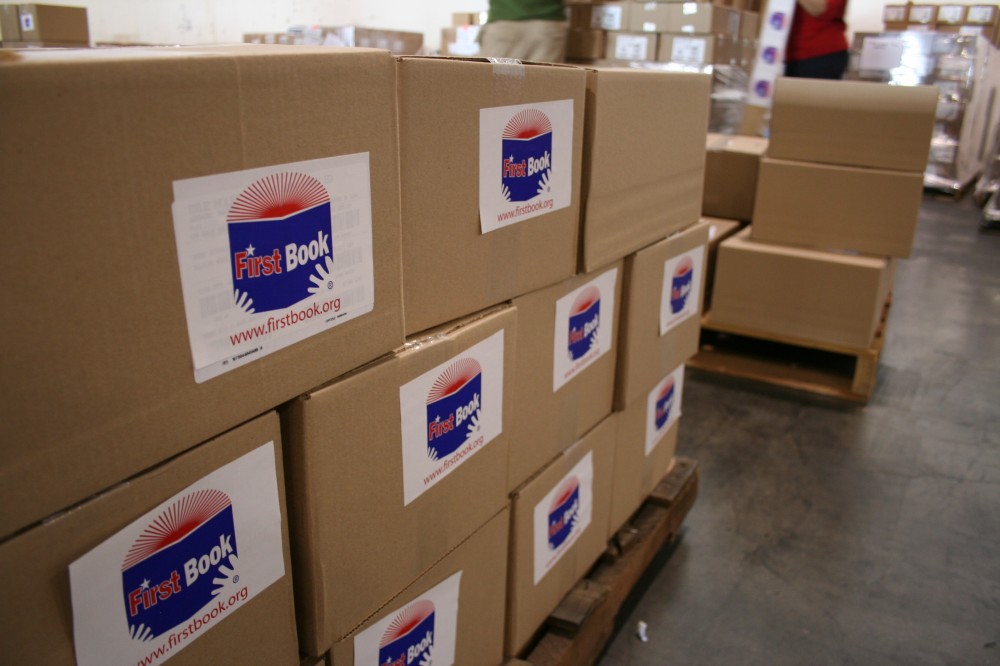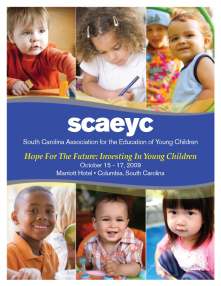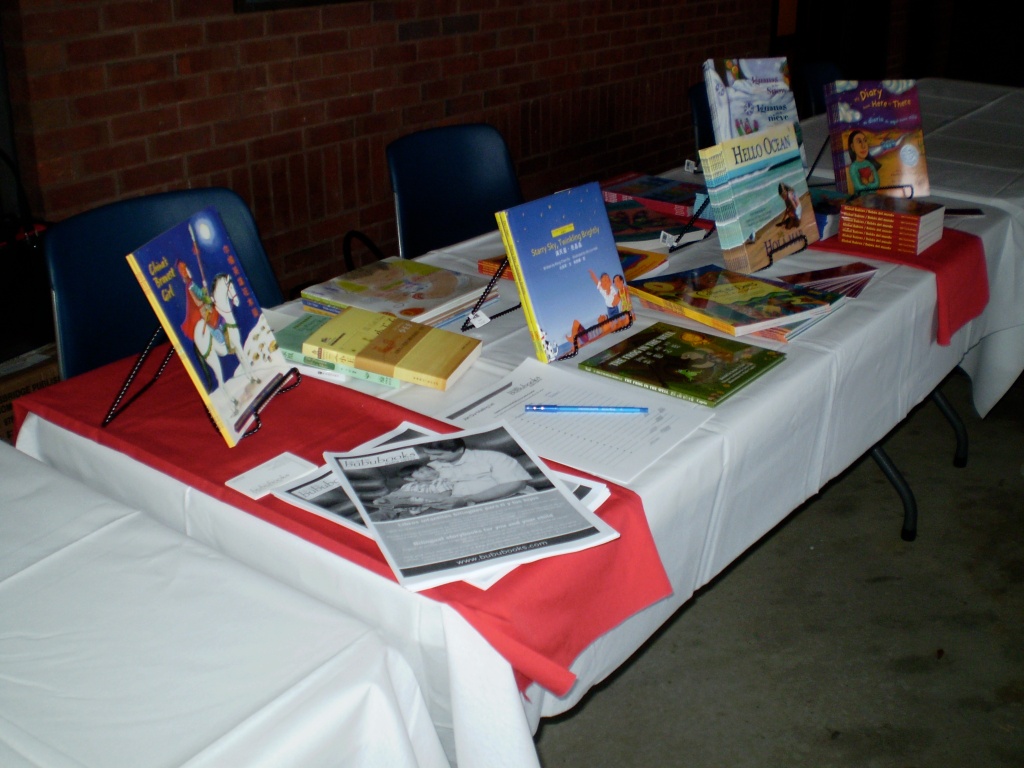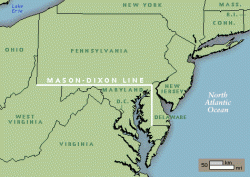... with all gratitude to my generous father, who shared his Hilton Head Island home with me for a few brief glittering days.
 Woodson, Jacqueline. 2014. Brown Girl Dreaming. New York: Penguin.
Woodson, Jacqueline. 2014. Brown Girl Dreaming. New York: Penguin.
Despite the title, Brown Girl Dreaming is most certainly not just a book for brown girls or girls. Jacqueline Woodson's memoir-in-verse relates her journey to discover her passion for writing. Her story is framed by her large, loving family within the confines of the turbulent Civil Rights Era.
Sometimes a book is so well-received, so popular, that it seems that enough has been said (and said well); anything else would just be noise. Rather than add another Brown Girl Dreaming review to the hundreds of glowing ones already in print and cyberspace, I offer you links to other sites, interviews and reviews related to Brown Girl Dreaming. And, I'll pose a question on memoirs in children's literature.
First, the links:
I was lucky enough to hear Jacqueline Woodson speak about and read from Brown Girl Dreaming during the School Library Journal Day of Dialog last spring. If any of you have seen Woodson before, you know she is charming, and dynamic and funny. She read a few poems from the book and spoke of her family and writing life. Like the rest of the librarians, I waited in line to speak with Ms. Woodson and have an arc signed, but 10 minutes or so into the wait I knew this arc wasn't going to be for me to keep. Instead, I had it signed for a student and gave it to her when I saw her next. So like so many others, I waited for the book birthday to get my hands on the hard cover copy on the day of its' release.
COLUMBIA, South Carolina – Longtime Realtor Rusty Shealy knows the value of a good piece of property. So after months of searching, he jumped at the opportunity to purchase a home with 4.5 wooded acres, the perfect place to build … Continue reading ![]()
I picked up a book recently because it’s set in New Orleans. The plot sounded okay, but really, New Orleans. As someone who used to live in the American Lowcountry, I miss the South. As an Anne Rice fan, I feel I’ve visited New Orleans many times, even though I haven’t.
I was excited to start this book, escape the desert for a while, and be lulled into a sensuous stupor by the sights, sounds, and smells of what many consider the most beautiful city in the world.
To say I’ve been disappointed is an understatement. Here’s what I’ve gotten so far: “There was something about New Orleans—something about the air itself—a certain sultriness found nowhere else, that silky touch of humidity on skin like fingertips dragged slowly over your flesh.”
Great! And that was the first line. Since that first line, nothing, nadda. The author could be writing about Wall, South Dakota, and I wouldn’t know. Where is my French Quarter? Where is the overwhelming, sweet scent of magnolia? Where are the horse-drawn buggies for tourists?
 I’ll tell you where: in New Orleans. But not in this author’s book.
I’ll tell you where: in New Orleans. But not in this author’s book.
As a writer, setting is important. In my novels (even in my short stories), the city becomes a character. When I wrote Life without Harry, my readers rejoiced over places they recognized and couldn’t wait to visit places they did not. Same goes for Something about a Ghost, set in Phoenix. You know damn well you’re in Phoenix. You feel the dry heat and smell the spring-blooming orange blossoms. You see the purple-red sunsets, because Phoenix has a persona. Setting should have a persona.
As I mentioned, I was once lucky enough to live in the American Lowcountry. I lived in Charleston, South Carolina (aka “Heaven on Earth”), and the novel I’m writing at present takes place there. An excerpt:
“The air felt crisp, clean, light, and although most of the flowers were long dead, the air still smelled like some sweet bloomer over the usual scent of saltwater and wet sand. He clunked down the metal stairs that led to the ground floor and paused as his boat shoes met grass.
“He walked through the yard and its overabundance of dormant gardenia plants, their waxy leaves still green and lush despite the chill. The Crepe Myrtles at the end of his sidewalk were almost bare, beyond a few dark orange leaves that clung. He pulled a leaf free and held it between his fingers as he took a left and walked down Church Street toward Battery Park.
 “He passed the houses where rich people lived, passed their well-kept gardens, their BMWs. He passed over brick roads, beneath the sprawling, wicked arms of Angel Oaks. He paused at Stoll’s Alley, a tiny walkway of brick, overwrought with climbing ivy—one of his usual short cuts—and kept moving until he entered Battery Park, the very tip of the Charleston peninsula.
“He passed the houses where rich people lived, passed their well-kept gardens, their BMWs. He passed over brick roads, beneath the sprawling, wicked arms of Angel Oaks. He paused at Stoll’s Alley, a tiny walkway of brick, overwrought with climbing ivy—one of his usual short cuts—and kept moving until he entered Battery Park, the very tip of the Charleston peninsula.
“He stayed on the edge of the Battery. He stood on the walkway overlooking the harbor with his elbows leaned against the cold metal rail. The sky was cloudy, so the water looked dark green, tumultuous as though a storm would soon arrive. In the distance, he could see Fort Sumter and an American flag that flapped in the wind. There was a wind, a slight one that brushed softly over his face and brought with it the smell of dead fish.”
Do you smell the smells? See the sights? Feel the air? I hope so. I worked hard to take you to Charleston, even if you’ve never been there. This is setting, and for some reason, we’ve forgotten it. We’ve gotten so caught up in plot, character, conflict—but what is a story without a world, a sense of place?
This is a reminder to writers and readers alike: don’t let books get away with weak settings. Don’t be lulled by pretty people. People are but a thin pie slice of what is really happening in a story. Don’t disappoint me. I’ll find you and write about you on my blog.
COLUMBIA, South Carolina — Rusty Shealy Pole Vault Club has pledged five 3-Day Summer Vault Camp slots, valued at $425, for vault fans who contribute $375 to Maggie’s Audiobook Campaign! Coach Rusty Shealy is eager to help narrator Tavia Gilbert … Continue reading ![]()
COLUMBIA, South Carolina — Rusty Shealy Pole Vault Club has pledged five 3-Day Summer Vault Camp slots, valued at $425, as a reward for vault fans who contribute $375 to Maggie’s Audiobook Campaign! The camps includes meals and lodging and … Continue reading ![]()
Students at McDonald Green Elementary School in Lancaster, South Carolina, are participating in a competition called the Living Literature Project.
We (unintentionally) started a debate about the origin of the word “buckaroo” with our quiz Can you speak American? last week. In an excerpt from Richard Bailey’s Speaking American, he argues that it comes from the West African language Efik (pages 52-54). A response from OED editor Dr. Katrin Thier will follow.
Not all Barbadians were brutish planters tyrannizing over those unfortunate enough to be in their power. In 1684, Thomas Tryon published some Friendly Advice in support of the conversion of slaves to Christianity. (The practical problem was that Christians might seek emancipation, and it was thus in the planters’ interest to keep these evangelizing efforts from being successful.) Tryon presented his argument in the form of a dialogue between a slave and his master, though without doing much to give an air of authenticity to the conversation:
SLAVE: I desire first you would lay that frightful Cudgel a little further off, and then begging Pardon for the Presumption, since this is the Day you observe to serve God in, I would crave leave to be a little instructed touching that Service, and wherein it consists.
MASTER: Why? It consists in being Christians, as we are — But what should I talk to such a dark ignorant Heathen, scarce capable of common Sense, much less able to understand things of such an high and mysterious Nature.
SL. I confess we are poor silly dark ignorant Creatures, and for ought I find, so many of the Bacchararo’s too, as well as we; but that you may not grudge your Time or Pains, I will assure you, that I will attend very seriously to what you say, and possibly may prove somewhat more docile than some of our Complexion; For I was the Son of a Phitisheer, that is, a kind of Priest in our Country and Way; he was also a Sophy, and had studied the Nature of things, and was well skill’d in Physick and natural Magick …. (Tryon 1684 , 150–51)
Tryon inserted a note to explain Bacchararo’s: “So the Negro’s in their Language call the Whites.” This publication (and the note) provide the first evidence of the word that in its modern spelling is rendered backra or buckra (Craigie and Hulbert 1938-44; Cassidy and LePage 1980; Allsopp 1996; Collymore 1957).
Buckra is very much an indicator word revealing the Barbadian connection to South Carolina. Today, according to The Dictionary of American Regional English, the word is found “chiefly” in coastal South Carolina and Georgia, though it is well known in many regions of the United States (Cassidy and Hall 1985). In the Caribbean, it has been employed in various compounds, though early evidence is lacking for many of them: backra fire ‘electricity,’ backra-johnny ‘poor white,’ backra missy ‘daughter of a planter,’ backra nigger ‘light-skinned person of mixed black and white ancestry,’ backra pickney ‘white child.’
Buckaroo persisted in the Sea Islands of South Carolina. In the 1970s, two investigators examined nicknames of people in the region and noted that the given names were often of English origin and the nicknames of African. The person bearing the nickname buckaroo was, they reported, especially skilled in the management of farm animals, and they asserted that the name was derived from vaquero ‘cow hand’ (< Spanish vaca ‘cow’). More likely, however, is the explanation that it was the special skill rather than the animals that accounted for the nickname (Baird and Twining 1991).
Volatility, though, has been the hallmark of the nomination race this year, and there is no reason to think this will change. The higher quantity of debates has helped Gingrich build a momentum in the last week — as has his superPAC — and both are new developments from the last cycle. For the first time in modern history, the Republicans have picked a different winner for each of the first three states. For the first time ever, the Republicans are going to nominate either a Mormon (Romney) or a Catholic (Gingrich). This denominational diversity reveals a conservative electorate much more concerned about the economy than about social values, which was the major issue just eight years ago. Finally, the loyal supporters of Ron Paul are a wild card, because no one knows to whom they will turn when Paul finally bows out — and he intends to to hang around. All told, there are 1150 delegates to get to earn the nomination, so this race pushes on at least until the Spring.
Gingrich did not win in South Carolina because of “electability” as the SC exit polls misleadingly say; he won because of the rage that South Carolinians believe is necessary to take on Obama. Gingrich received the first standing ovation in the debates so far when he observed that more people had been put on food stamps under Obama than under any other president – a line he has been repeating in the last week. Obama will not and cannot receive credit for whatever he has done because his very presence in the White House is perceived by some conservatives as a criminalization of the the state in the service of socialism. This newly rediscovered “southern strategy” worked in South Carolina and it may well work beyond.
Gingrich is in a good position but not a front-leading one, however. He will not enjoy the native-son-of-the-South advantage in Florida as he did in South Carolina, so the next contest is going to be important for him to prove his viability. He would need a huge infusion of cash to be able to afford the television ads he or his superPAC will need to run in Florida. Gingrich won’t be able to sustain his momentum with just the free media, though the two debates last week will help. For now, Romney still enjoys a lead because Florida’s electorate is older and less evangelical than in South Carolina. Early voting has already started in Florida, and will continue until the 28th, so Romney’s initial lead there would help him.
It is also worth noting that Romney is the only candidate who has done well in all three states. He is still, therefore, the frontrunner. But he cannot afford any more mis-steps. The tax returns questions from the media was just poorly handled, and Romney has stuttered repeatedly on a question for which he should have been more than prepared (as Gin


The students at McDonald Green Elementary School are smart, funny, polite and enthusiastic. They made my visit very special.
 The trees are lush and green.
The trees are lush and green.

I visited Charleston, South Carolina last week and what a lovely city it is. Beautiful historic architecture, tons of restaurants and a vibrant downtown, plus much to do. We had a great time. Thought I would share some of the pictures I took.
 We move a lot of books at First Book. Over five million books last year, to schools and programs serving kids from low-income communities, and those cases of books are HEAVY.
We move a lot of books at First Book. Over five million books last year, to schools and programs serving kids from low-income communities, and those cases of books are HEAVY.
Sometimes people assume we have a warehouse somewhere, maybe at our national headquarters in DC. We definitely do not. (Our staff is doubled up in many of our offices, so there is definitely no room for giant pallets filled with books. Not to mention the difficulty of driving great big trucks through the streets of our nation’s capital).
So where do all these books come from?
When our friends at publishing companies donate books to First Book, we need warehouses to put them in. In years past, we have relied on a network of generous volunteers throughout the country, and we continue to do so. But with donated space you sometimes have to move inventory in and out quickly, and it can be hard to plan in advance.
So First Book, in partnership with an innovative high school program in Martinsburg, West Virginia, decided to put students to work moving our books around.
“What First Book has been able to do has totally revitalized the program,” said Doc Greenfield, who runs the warehouse program in Martinsburg. “Now, working with First Book, we have real product, real purpose and real customers.”
Warehouse management and materials handling are useful skills to have in today’s job market, and there are programs in high schools all over the country that teach them. But not many companies want to trust their inventory to warehouse workers who lack experience, so the students in these programs often resort to moving empty grocery boxes. Helpful, but not as helpful as dealing with real inventory.
However, it just so happens that First Book has TONS of real inventory, in the form of books. And we mean tons. And, since we want to spend every last penny we can getting new books into the hands of kids in need, we’re happy to trust those pallets to students in warehouse programs. (It turns out that the students do every bit as good a job as the professionals). On top of that, every school warehouse program we work with gets to keep a small portion of the books for eligible programs their community.
Greenfield runs a two-year program, and he has many success stories; it’s been easier for his students to get work with their hands-on experience. “I’m trying to get them ready for the real world,” he said.
In addition to Greenfield’s program in West Virginia, First Book works with warehouse programs in Altoona, Pa., Rock Hill, S.C., and Lake City, Fla., and we’re working to sign up several more.
The program has been a great partnership, with major benefits for First Book – letting us control our inventory of books to make sure they go to the places that need them.
“At any given point in time, we can hold half-a-million books,” said Rachael Voorhees, who heads up First Book’s logistics team. “We’ve never been able to say that before. It’s huge.”
Jacey and Laura both represented bububooks at events this past weekend. Jacey visited beautiful northwest Georgia for the annual Georgia Literary Festival in Rome. Despite the cold temperatures, she says she enjoyed her time up there and got to meet some pretty cool people, authors and booksellers. Maybe she and her husband will make a camping trip up there in the near future!
 Laura headed up to Columbia, South Carolina, for the South Carolina Association for the Education of Young Children conference. Having never been to South Carolina before, she thoroughly enjoyed the city of Columbia and the people. By the end, she was giving hugs as she left the conference! At the conference, Laura met lots of GREAT people who are all seeking to improve the lives of children and teachers in South Carolina. She says it was an inspiring weekend and she looks forward to going back as she develops stronger relationships with the people she met from throughout the state. She’s so sad (and has been chastised by us) that she didn’t get any pictures of her new friends but promises to take more pictures next time. It has been her favorite trip for bububooks by far! Thank you South Carolina and the SCAEYC!
Laura headed up to Columbia, South Carolina, for the South Carolina Association for the Education of Young Children conference. Having never been to South Carolina before, she thoroughly enjoyed the city of Columbia and the people. By the end, she was giving hugs as she left the conference! At the conference, Laura met lots of GREAT people who are all seeking to improve the lives of children and teachers in South Carolina. She says it was an inspiring weekend and she looks forward to going back as she develops stronger relationships with the people she met from throughout the state. She’s so sad (and has been chastised by us) that she didn’t get any pictures of her new friends but promises to take more pictures next time. It has been her favorite trip for bububooks by far! Thank you South Carolina and the SCAEYC!


 What separates the south from the north? Nope, not the Mason-Dixon. It’s the road signs.
What separates the south from the north? Nope, not the Mason-Dixon. It’s the road signs.
New Jersey’s exit signs remind us that the road we’re on is not the road we want. Ads for dating websites wilt on the medians. The giant green gecko stares down at our cars, reminding us to save on insurance. There’s not much personality there.
But South Carolina? There’s treasures along the roadside. And I’m not talking about boiled peanuts.
Reading the signs along a rural route, I was reminded of how small, specific details in your writing–like a street name or a slogan on a church billboard–can contribute loads to the mood and setting of your story.
Here’s the southern road signs that charmed me.
DAN
THE
MAN’S
Tractor Service
814-DIRT
Christians Like Pianos
Need Frequent Tuning
Minnows Crickets
Worms Sodas
Bee City
Honey Farm
Petting Zoo
Pumpkin Girl Road
Heavy Father Lane
There’s Only One Heaven
and Only One Way
to Get There
Groceries & Hunt’n Stuff
Welding
Organic Produce
Today’s Sons
are Tomorrow’s Fathers
Mars Oldfield Road
Vincent’s Venison
Processing Plant
There are stories buried in these signs.
Do you pet bees at Bee City?
Was Pumpkin Girl related to Heavy Father?
Is the welder married to the organic farmer? Or are they the same person?
Did aliens once land on Mars Oldfield Road?
What stories do your town’s signs tell?

Today I decided to attend church services at a teeny little church my dad belonged to about 7 years ago. It's way out in a teeny little town in South Carolina. I hadn't been there in a while, so I wasn't sure I could find it. So I tried to use the GPS.







Actress/author Meg Tilly is coming to Book Bites for Kids today to talk about her new YA novel, Porcupine.The show is LIVE on blogtalkradio.com at 2:00 central time this afternoon.

Actress/Author Meg Tilly from her film, The Big Chill
You may remember Meg Tilly from such films as The Big Chill, and Agnes of God, but you might not know that she’s also an author - with two books for adults and now an impressive first YA novel.
 Porcupine is the story of twelve-year-old tomboy Jack Cooper (or Jacqueline, as her mother insists on calling her).
Porcupine is the story of twelve-year-old tomboy Jack Cooper (or Jacqueline, as her mother insists on calling her).
When her father is killed by “friendly fire” in Afghanistan, Jack “watches as her mother crumbles under sorrow and depression. Jack and her younger sister and brother, Tessa and Simon, end up across the country, living on a run-down farm in a small town on the Prairies with a great grandmother they didn’t know existed.”
Learn more about Porcupine, today, October 30th, when Meg Tilly guests on Book Bites for Kids at 2:00 central time.
Listen to the show at http://www.blogtalkradio.com/bookbitesforkids or call in and ask a question or make a comment at 1-646-716-9239.
author interivew, blogtalkradio.com, Book Bites for Kids, Meg Tilly, Porcupine, YA Fiction
So true! I would never mention setting in a story if I didn’t include bits and pieces of my own experience in the town. I feel bad that you were disappointed, so I’ll leave you a post link to my vacation photos from New Orleans! Hope you don’t feel it’s spamming.
I want to go sooooo bad!! Looks lovely
I also find setting becoming a character. After all, where you come from and where you’re going shape the MC. Have you read Ruta Sepetys’ Out of the Easy? It’s brilliant. I think you’ll get your New Orleans fix too.
We moved near Charleston two years ago. It’s a beautiful place to raise a family and I’m finding that anybody who’s spent any time here wants to come back.
I have been to Charleston very often (I was there two months ago!), and reading your words took me back once more. I love books where the setting becomes a character, and I would be disappointed in the New Orleans book too, I’m sure. Can’t wait to read your lowcountry book! = )
Setting is definitely vital. You’re right, though, I think writers often skimp on setting. I wrote about NYC, my hometown, recently in a project and really enjoyed the process of incorporating the setting into it. It showed me that I need to get to know my other settings well enough to write them the same way.
I enjoyed your descriptive passage, the one you shared here.
Because of my own weirdness, I always have to be urged by betas to add description. Thank you for reminding me. It’s also partly a problem of those of us who navigate between writing novels and picture books, where the descriptive button has to be turned off, and left to the illustrator.
Such a good point about writing children’s books! Never thought of that!
I always end up writing novels that take place where I am. Then, I can walk the streets and feel the seasons as I go. Probably why I move every couple years haha …
I so agree with you, Sara! I was reading someone’s pages and the lack of detail annoyed me. The premise of the story was interesting enough, but I couldn’t settle properly into his world. I need to work on my own attention to detail, too, though. Post. Thoroughly enjoyed.
You know what, though, Sara? I just thought of something. I also read another piece of a WIP and I would say too much description can be a downfall, too. Too much description that wants us to see everything at once and ends up losing us. I am talking more about laying out a setting. The cliff…a train track ran northwest…etc, etc. If not done properly, layering a setting with description and showing the layout can just ruin things.